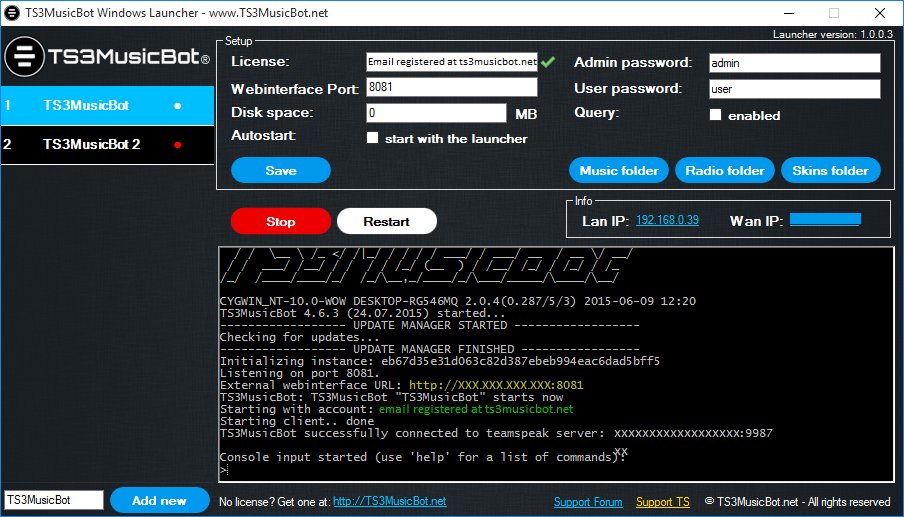

Luckily, once you have figured out the audio codec of the audio track, you should be able guess its proper container format using the audio codec (more below).īelow is a general use of ‘ffmpeg’ for analizing the input (source) file for getting the audio codec information.īelow is the command for extracting the audio track (you only have to change the colored text codes).įfmpeg -i input-file -acodec: copy -vn output-file. Because if you extract an OGG Vorbis audio file and it put it inside a MP3 container format (.mp3), then you will run into to troubles while playing (or ‘ffmpeg’ will give you an error and exit). Use proper output format - This is the last and the crucial step. Audio Codec - We have to figure out the audio codec of the audio track inside the multimedia file (mentioned above). And before we can extract an audio track of a multimedia file, there are two things that one has to figure out first. That is why we can extract any of those tracks without having to re-encode them.

The video, audio and the subtitle tracks are stored inside a single file (called the ‘container format’), separately. Take a movie with a subtitle for instance. Sudo apt-add-repository ppa:jon-severinsson/ffmpegĪny multimedia file, though it seems like a single file (AVI, MKV, MP4 …), inside it, it holds each multimedia content (also called ‘streams’) separately. This PPA (thanks to ‘Jon’) will give you the latest stable version of ‘ffmpeg’ and has packages for Ubuntu 12.10, 12.04, 11.10, 11.04 and 10.10 (as of writing this post). For that, open your Terminal and enter the below commands (one after the other). Let’s first install ‘ffmpeg’ on your Ubuntu computer. ‘ffplay’, the built-in media player (CLI) of ‘ffmpeg’ …

Not just one multimedia format, but with ‘ffmpeg’ you can extract the audio track (s) of almost all popular multimedia container formats too!. It supports multiple operating system platforms, and if you use GNU/Linux, then applications such as VLC, MPLayer, OpenShot & Kdenlive (video editors) and even ‘Gstreamer’ (another multimedia framework) supports using ‘ffmpeg’ for playback (these are of course just a handful to mention).Īnyway, as an Ubuntu user, if you wanted extract the audio track of a multimedia file (without having to encode it) and okay with playing with the command-line a bit, then ‘ffmpeg’ can easily do that for you. ‘ffmpeg’ is a powerful multimedia framework (a set of tools for handling multimedia file) that is being used by hundreds (if not thousands) of audio & video applications (editors, encoders, players, streaming apps … you name it!).


 0 kommentar(er)
0 kommentar(er)
